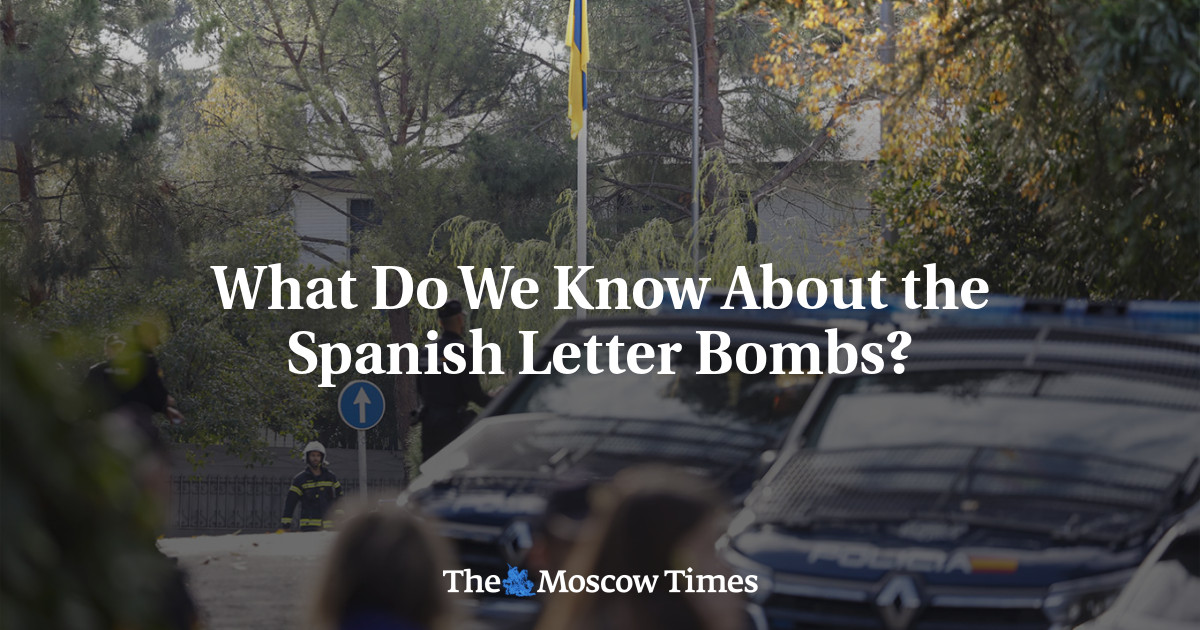
Six letter bombs have been sent to high-profile government, military and diplomatic targets in Spain in the past week, prompting authorities to step up security and re-commit support for Ukraine in its nine-month war against invading Russian forces.
Here’s what we know so far:
Who received the letter bombs?
Starting Nov. 24, police intercepted an envelope containing “pyrotechnic material” addressed to Spanish Prime Minister Pedro Sanchez, the country’s interior ministry said Thursday.
A week later on Nov. 30, a second letter bomb addressed to the Ukrainian ambassador detonated outside the Ukrainian Embassy, lightly injuring a security officer’s hand.
Later that day, the Instalaza arms manufacturing company that had sent more than 1,000 C90 rocket launchers to Ukraine received a third suspicious package.
Three more suspicious parcels were sent to a Spanish air base outside Madrid that houses an EU satellite center, Spain’s Defense Ministry and the U.S. Embassy on Thursday.
Was Spain the only location to receive threatening letters — and were they all letter bombs?
Three Ukrainian embassies in other as-yet-unnamed countries received envelopes “soaked in red liquid” in addition to the letter bomb in Madrid, Foreign Minister Dmytro Kuleba said Thursday, prompting Kyiv to boost security at all its embassies abroad.
The next day, the Ukrainian foreign ministry announced a number of its diplomatic missions in the European Union have received packages containing animal eyes.
The war-torn country’s embassies in Hungary, the Netherlands, Poland, Croatia, Italy and Austria, as well as general consulates in Naples and Krakow and the consulate in Brno, received the “bloody” packages, foreign ministry spokesman Oleg Nikolenko said.
“We have grounds to believe that a well-planned campaign of terror and intimidation of Ukrainian embassies and consulates is underway,” Kuleba said in Friday’s statement.
What did the authorities do?
Spanish national police specialists safely detonated the envelopes suspected of containing explosives at all locations except the Ukrainian Embassy in Madrid.
Spain’s high court has opened an investigation into terrorism.
Spanish Defense Minister Margarita Robles reaffirmed Madrid’s support for Kyiv in the wake of the letter bombs during her visit to Ukraine’s port city of Odesa on Thursday.
Spain has delivered or pledged to supply Ukraine with surface-to-air missile launchers, a battery of six light howitzers, as well as ammunition, body armor and light weapons, according to Reuters.
In addition to sending arms to help Ukraine, Spain is training Ukrainian troops as part of a European Union program and providing humanitarian aid.
Where did the letter bombs come from?
Initial investigations have determined that the first five envelopes had come from Spanish territory, according to Rafael Pérez, secretary of state for security.
He said the packages bore similar characteristics, including their brown color. The Interior Ministry later said the sixth package intercepted at the U.S. embassy had similar characteristics to the previous five.
Who is to blame?
Ukraine’s Ambassador to Madrid Serhii Pohoreltsev appeared to suggest that Russia had a role in the detonations.
Russia’s Embassy in Spain said: “Any threat or terrorist act, especially those that target a diplomatic mission, is to be totally condemned.”
Kuleba, without pinning blame on a specific country, said the spate of threatening letters “means they’re afraid of us, they’re trying to stop us.”
AFP contributed reporting.